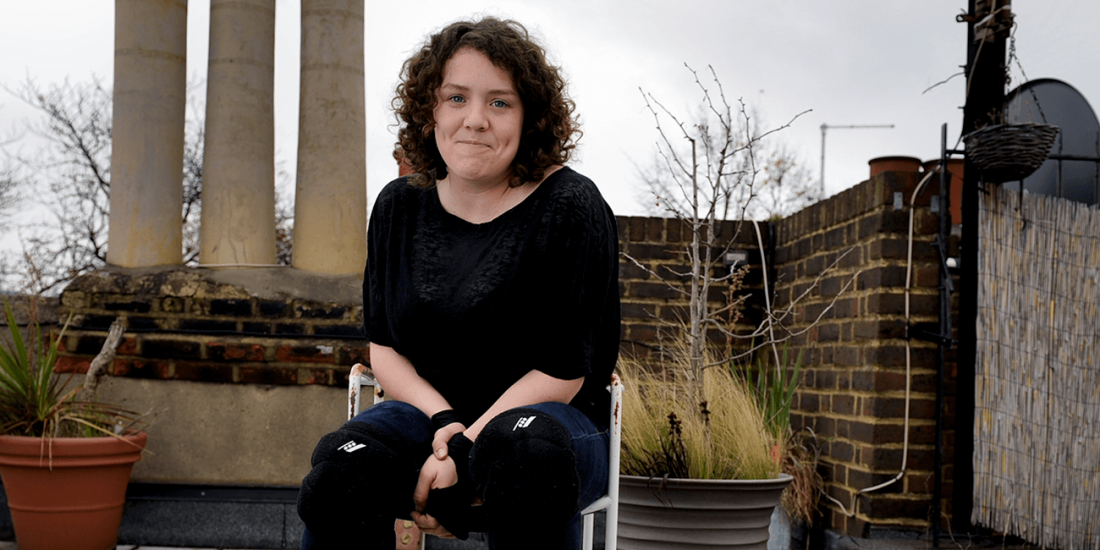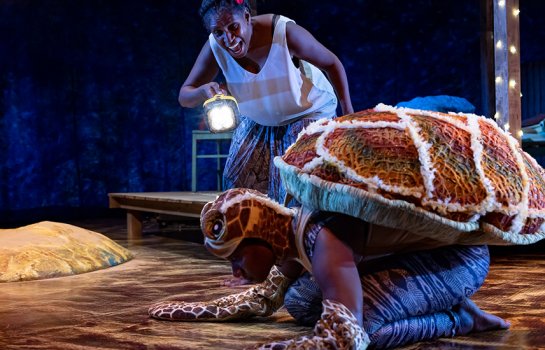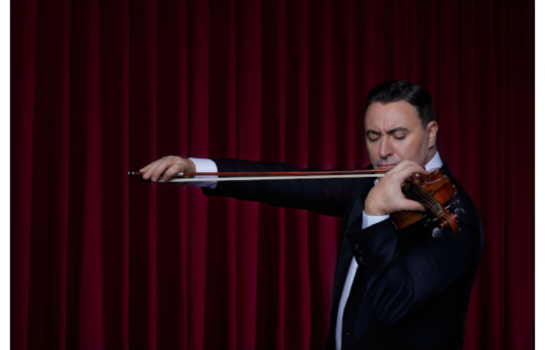Jess Thom, performer, Backstage in Biscuit Land
There are plenty of jokes for disabled and non-disabled people alike – laughter’s a great way to discuss more serious issues ...
Tourette’s syndrome is a condition that affects thousands upon thousands of Australians each year, yet it still one of the most misunderstood conditions when it comes to public perception. Only a fraction of those with Tourette’s syndrome exhibit the stereotypical symptoms people are familiar with, and many people living with Tourette’s continue to live fulfilling lives in a myriad of fields. Jess Thom is one person with Tourette’s, whose tics manifest in a compulsion to say ‘biscuit’ 16,000 times a day. As co-founder of Touretteshero – a body that works to celebrate and encourage those with Tourette’s – Jess has turned her condition into a boundless source of creativity. In addition to educating the general populace on the intricacies of Tourette’s syndrome through Touretteshero, Jess has also created an engaging theatrical performance that approaches the topic in a different way. Jess’s award-winning stage show Backstage in Biscuit Land is an incredibly unique and entertaining look into the world of a person with Tourette’s syndrome. Using improvisational comedy, puppetry and a few rude words, Backstage in Biscuit Land aims to celebrate the humour and creativity of Tourette’s while also challenging assumptions surrounding the condition and those that live with it day in and day out. Backstage in Biscuit Land will be taking centre stage at QPAC from Wednesday October 19. We took the opportunity to talk to Jess about the show and what we can expect from proceedings.
First of all, can you tell us where the idea behind Backstage in Biscuit Land came from?
Backstage in Biscuit Land was born out of some difficult experiences I’d had in accessing live performance, and draws from my blog on the Touretteshero website. I wanted to create a piece that shared my belief that making theatre inclusive makes it better, as well as inviting the audience into the funny and surreal world my tics create – that is Biscuit Land!
How did you go about putting the show together in a way that accurately communicated the issues facing people with Tourette’s in an entertaining and educational way?
The show was a creative collaboration between myself, my co-performer Jess Mabel Jones (aka Chopin) and our director Matthew Pountney. We used existing texts, verbatim interviews and improvisation to bring the stories to life. The piece shares my experiences of having Tourettes so I can always tell if it’s accurate or not!
The entire show sounds incredibly unique – especially when no two shows are ever the same. What’s something audiences can expect from each performance?
All our performances are relaxed, so there’s a warm invitation to respond to the show in a way that feels natural – if you tic, shout or move about, you’re very welcome. You can expect puppetry, unusual improvisation and the occasional rude word. Most of all I hope you can expect to laugh – there might even be a biscuit in it for you if you do!
What do you hope audiences take away from the performance in regards to their understanding of Tourette’s syndrome?
I hope that by engaging with the show people will gain a deeper understanding of the condition as well as having some of their assumptions challenged. There are plenty of jokes for disabled and non-disabled people alike – laughter’s a great way to discuss more serious issues.
What is the biggest challenge inherent in staging this show?
Several times a day my tics intensify and I suddenly lose control of my body and speech – so there’s plenty of genuine jeopardy! This doesn’t happen often but it does mean Chopin keeps an emergency script on hand just in case.
Alternatively, what’s the biggest joy you get from performing Backstage in Biscuit Land?
Meeting new people, sharing the stage with Jess Mabel Jones and sharing laughter in different ways each night. Each show is different so I can never get bored.
A friend of yours once described your tics as a ‘crazy language-generating machine’. How did this change the way you felt about having Tourette’s syndrome?
I suddenly realised they had creative value in themselves. I’d kept my artistic practice and my tics entirely separate for years. What Matthew said helped me reframe my condition and see my tics as my power, not my problem.
You are also the co-founder of Touretteshero – what can you tell us about the work that this organisation does?
Touretteshero celebrates the humour and creativity of Tourettes syndrome and shares it with the widest audience possible. We put on creative events for children and young people, help raise awareness about the condition, and campaign for a more inclusive and equal society.
What are some of the biggest misconceptions about the syndrome that you hope to clarify with this show and your work with Touretteshero?
The biggest myth about Tourettes is that it’s the “swearing disease” in fact only 10% of people with the condition have obscene tics. It’s a neurological condition, not a mental health disorder, and it’s not caused by bad parenting, nervousness, or demonic possession!
What keeps you motivated and inspired in work and in life?
I’m incredibly lucky to be able to explore and peruse my own creative practice, as a writer, an artist, a performer, and as a part-time superhero. I recently received an engagement fellowship from the Wellcome Trust; this is a fantastic opportunity for me to deepen my work as well as being a great endorsement of the work Touretteshero already does. In life, my friends and family keep me motivated whether I like it or not.
Backstage in Biscuit Land will be at the Queensland Performing Arts Centre from October 19–23. Head to the QPAC website to buy your tickets and also consider watching Jess Thom’s engaging TED Talk.





